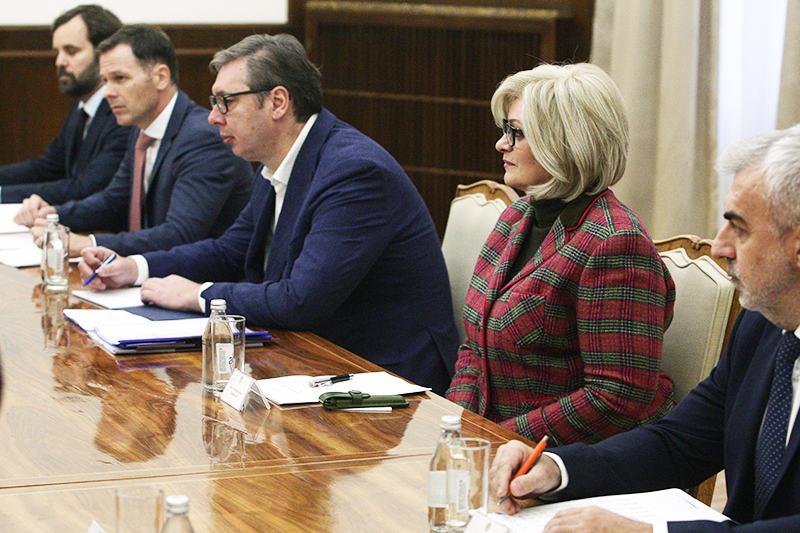10/12/2024


Source: Tanjug
At the meeting held on 9 December, the IMF Executive Board decided on the following:
The IMF estimated that Serbia has successfully implemented measures within the agreed economic programme and exceeded the plan, with excellent prospects going forward.
“The successful conclusion of the fourth and final review of the Stand-By Arrangement confirms yet again that Serbia is implementing credible policies. The fact that the IMF approved the Policy Coordination Instrument to Serbia for the third time shows that the IMF expects sound economic policies to continue in the medium term as well. This non-financial and advisory instrument is intended for countries pursuing a strong economic policy, which is what Serbia is doing. This is backed by the expected acceleration of GDP growth to the range between 4% and 5% in the coming years”, said Governor Jorgovanka Tabaković.
The IMF estimated that within the SBA, Serbia implemented ambitious reforms, contributing to the achievement of outstanding macroeconomic results:
The completion of the fourth review enabled the withdrawal of funds amounting to around EUR 400 mn (SDR 316.47 mn). Given the achieved results and the continued stability of economic indicators in our country, the arrangement has been treated as a precautionary arrangement since the second review of the programme (which was one review earlier than initially expected upon approval), and since then, the available funds have not been used.
In numbers, and as a concrete confirmation of the adequacy of the policies, Governor Jorgovanka Tabaković stated:
“All of this is part of the results that have placed us in the group of investment-grade countries. An increase in Serbia’s credit rating is indeed confirmation that the Government and the NBS, through joint efforts and the wise policies and strategic decisions of President Aleksandar Vučić over the past years, have responsibly pursued the country’s economic policy”, noted Governor Jorgovanka Tabaković.
To confirm continuous commitment to good policies and the continuation of the reform momentum and fiscal discipline, Serbia will continue cooperation with the IMF through a three-year Policy Coordination Instrument in order to:
In the IMF’s assessment, this will be aided by the ambitious public investment plan and the continuation of structural reforms.
“Acknowledging the results Serbia has achieved over the past twelve years, by a new, third in a row Policy Coordination Instrument, the IMF will both sustain them and support the continued implementation of an ambitious reform agenda. Inflation within the NBS target bounds, the maintained relative stability of the RSD/EUR exchange rate and record-high FX reserves will remain an important pillar of investment and consumer confidence and the country’s financial stability”, concluded Governor Jorgovanka Tabaković.
Governor’s Office